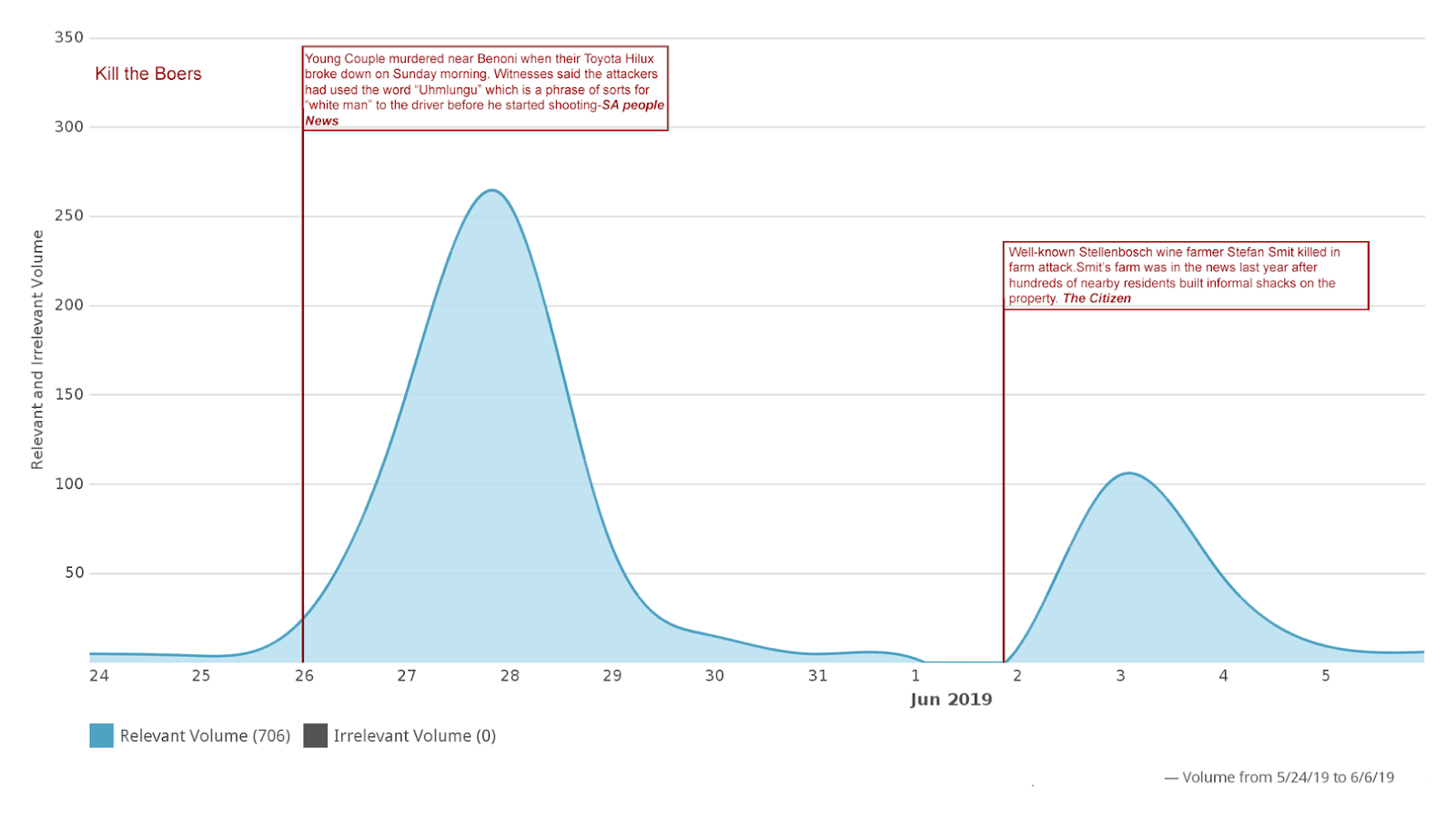Monitoring and Analysis of Hateful Language in South Africa: A Fifth Deep Dive
Umlungu
As South Africans settle in a post-election country, underlying social issues have emerged in the form of hateful language on social media. During our monitoring period, the term mlungu increased significantly after a young white couple was allegedly murdered in Benoni by three black men. The term at its base means "white person," but the connotation can be negative depending on inflection. Witnesses noted that the assailants shouted “Umlungu” before opening fire. Debates ensued on social media about whether the couple was killed for being white, or if use of the term mlungu made it a hate crime at all.
Of interest is the term's ambiguity—some define it as hate speech, e.g. Anyone who believes that the word "Mlungu" is not an insult and hate speech is naïve, while others hold that it simply means "white person." This discord is quite common in perpetrator and victim dynamics and is seen in other countries such as Nigeria and South Sudan.
Kill the Boer
After the same murder, the phrase Kill the Boer was also used to explain why racial violences such as these were happening in South Africa. Social media users blamed political leaders who used the phrase and their followers who took them seriously. For instance one person remarks—Yes they were! Its because "dumb as soil" black boons take what Julias 'Hanswors' Malema and Andile 'Houtkop' Mngxitama say literally when they utter "kill the boer"! What are white people generally known as by blacks in SA- "BOERE"! SAHRC go fuck yourselves-you are MURDERERS too!
The South African Human Rights Commission (SAHRC) previously cleared political leader Julius Malema from any wrongdoing after he sang Kill the Boer, stirring anger towards SAHRC by those who view this phrase as hateful.
A second wave of use swept after a farm was attacked and the owner, a white farmer, was killed. This reignited the conversation on farm attacks fuelled by utterances like Kill the Boer by political leaders
Although the Crimen Injuria laws in South Africa were established to curtail hate speech, the volatility of online discourse has yet to be addressed. And while scholars and practitioners in this space have questioned how hateful speech by leaders can catalyse mass violence, it is also important to question if it catalyses targeted smaller violences.


